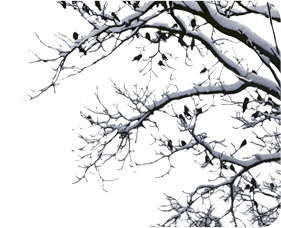
Excepted from “Fearless at Work”
A favorite Taoist story passed down through the centuries recounts the tale of a young boy caught in a most distressing predicament where fearlessness is not a matter of braving untold challenges or shouldering heavy burdens, but about taking delight in the midst of life’s inevitable demands.
One afternoon, like many afternoons before, a young boy, Simha, walked the edge of the jungle on his way home from work. This day, however, he noticed that he was being stalked by a tiger, who, remaining concealed in the shadows and tall grass, was silently angling to ambush him at an approaching narrow point in the path.
Being a clever boy and not wanting to be a meal for the tiger, Simha, slowly changed direction and then, without warning, quickly sprinted for a nearby abandoned stone quarry where he felt sure he would find refuge if he could outrun the shadowing tiger.
And sure enough when Simha reached the quarry he rushed toward the towering stone wall and grabbing hold of a vine that had grown down the cliff, pulled himself up off the ground and safely out of the reach of the tiger who arrived seconds too late to grab him. To his relief, the tiger roared and jumped but could not reach him as he hand over hand climbed the vine toward the top.
As Simha climbed closer to his escape at the top of the cliff, he suddenly noticed that another tiger – a tiger that he had not spotted earlier – had maneuvered to the top of the cliff and was stationed patiently at the end of the vine – awaiting Simha as a meal. Below he could see a tiger pacing and growling – above he could see another licking its chops.
As he paused to reflect on his distressing circumstances, Simha glimpsed a pair of mice playing among the vines and greenery. One was black, the other white and as they went about their business they would occasionally stop and nibble at the vine that suspended Simha along the face of the cliff and between the two tigers. Each nibble frayed the vine further and Simha’s predicament grew more and more precarious.
Then, glancing off to his left, Simha noticed a dazzling, red perfectly ripe strawberry nestled among the foliage. And for a moment he paused and wondered at such a marvel and stretched out to pick the berry that was ever so slightly out of his reach. Then, shifting his weight, he swung the vine back and forth until he could snatch the strawberry from its nest and he held the red fully ripe fruit in his hand, smiled and took a full bite. And true to its appearance the strawberry was delicious beyond compare – an occasion of radiant, flavorful, delight.
Now, as with most stories where we are literally “left hanging”, we may ask ourselves: “What happens next?” Does Simha escape?” “Does he toss those pesky mice off the cliff?” “How does he outsmart the tigers?” But in this case, there are no resolutions to these questions, because it isn’t in the resolution but in the taste of the strawberry where we learn the lesson of Simha’s story.
In many respects, Simha’s circumstances reflect where we all find ourselves as human beings. The tiger of death is ever present, at times unseen, but always getting closer. And like Simha, we may cleverly seek to avoid its grasp, but in the end must acknowledge the presence of the tiger – the ever-present reality of death.
Now, the presence of a tiger can, no doubt, wake us up to some ironies - the black and white mice that fritter away our hold on our lives: hope and fear; praise and blame; success and failure. But keeping score in such a way seems oddly pointless in such circumstances – dangling from a cliff in the presence of death’s tigers. Young or old; rich or poor; successful or struggling; healthy or infirmed – the tiger awaits all equally, despite the score.
But, in the midst of what for so many of us would be desperate, dismal circumstances, Simha notices, then delights in a simple gesture: the tasting of a berry. And it is here where we discover a formidable truth about living a fearless life.
To be human is to confront truly difficult circumstances no doubt: disease, poverty, tragedies and frustrations of all kinds. Yet, for all of us, there is always, always the possibility of delight: to awaken to life’s rich, sensual wonders like sipping a glass of water, glimpsing the vast sky, touching another’s face or simply having a nose. Appreciating our lives naturally, almost effortlessly, in this way right in the midst of life’s tigers and mice requires us to bravely acknowledge something powerful about our human dilemma – something red, dazzling and fully ripe. Maybe right within our grasp is this vividly ripe moment – wonderfully delightful - if we have the daring to simply recognize it.
The slogan “No delight; no courage” reminds us that “the fierce facts of life” are unavoidable but not the entire story, because to live a fearless life, requires that we taste life fully. And what Simha realizes in tasting that berry – and what we all can realize in our lives – goes well beyond just “counting our blessings” in midst of life’s predicaments but is about accepting an invitation to become fully awakened - delightfully human moment by moment for the rest of our lives.

